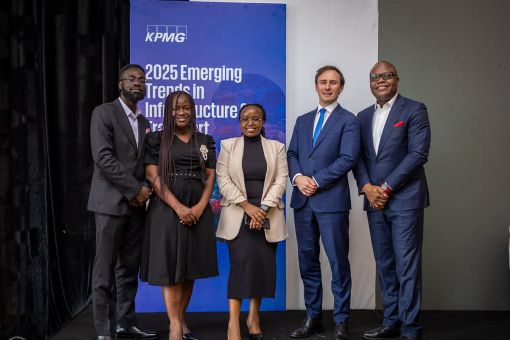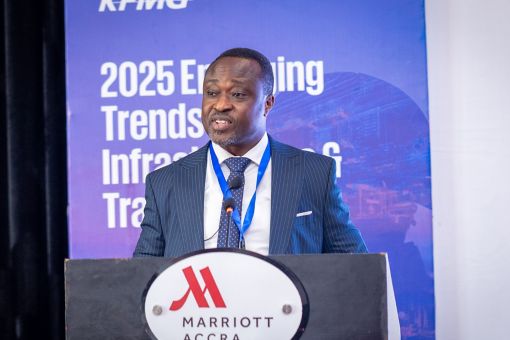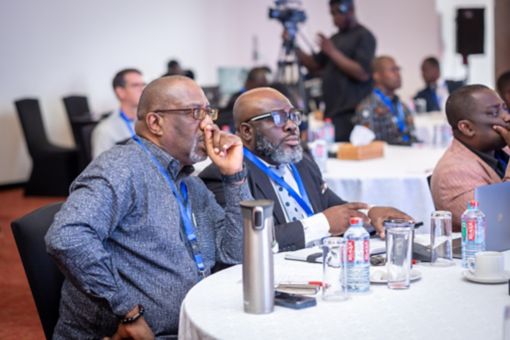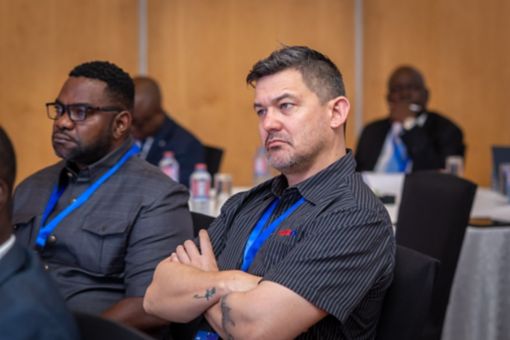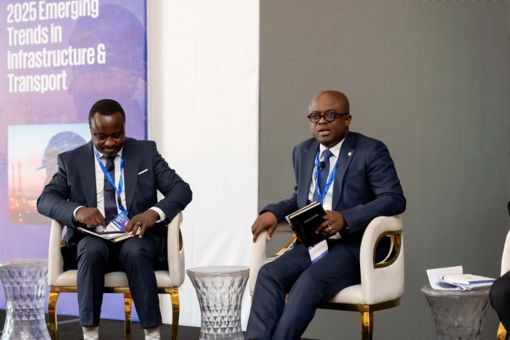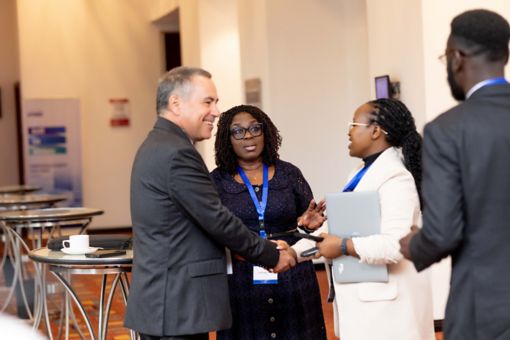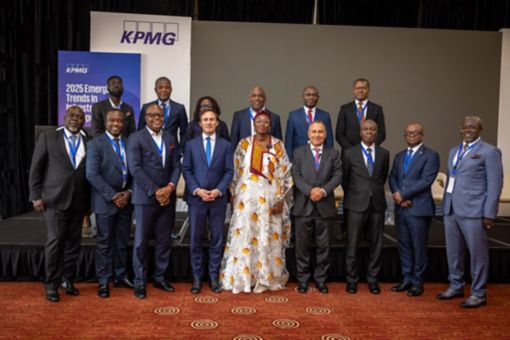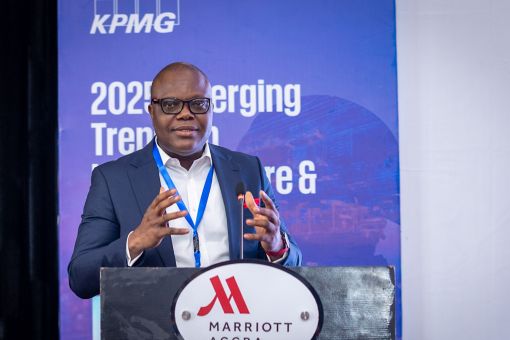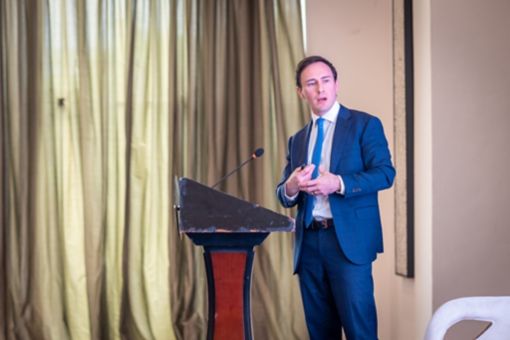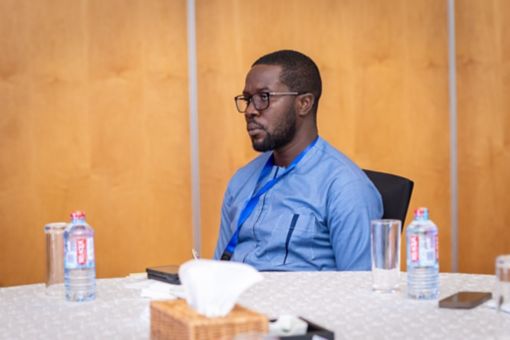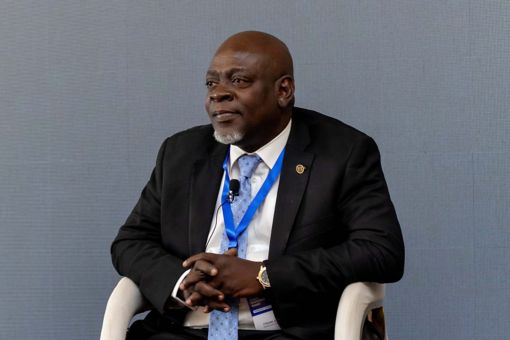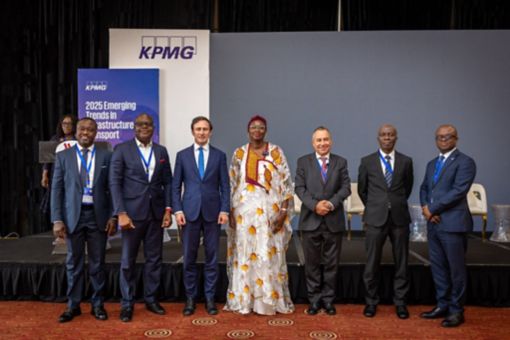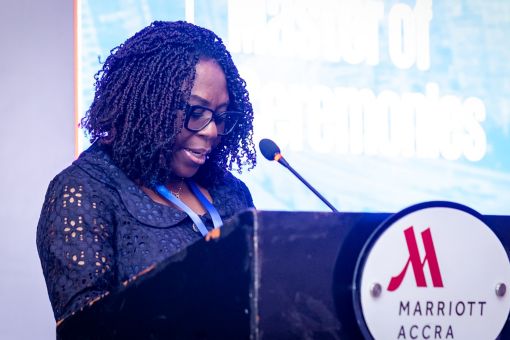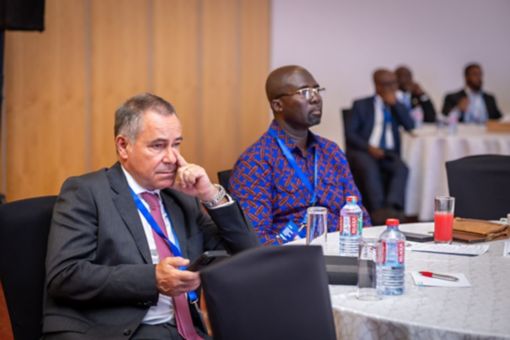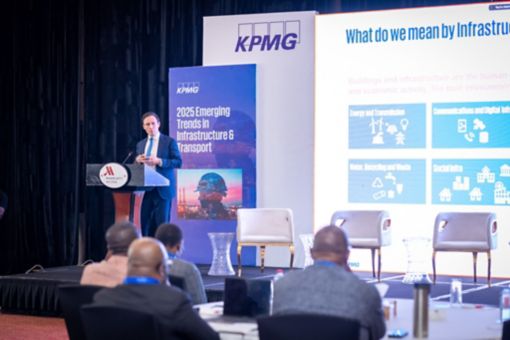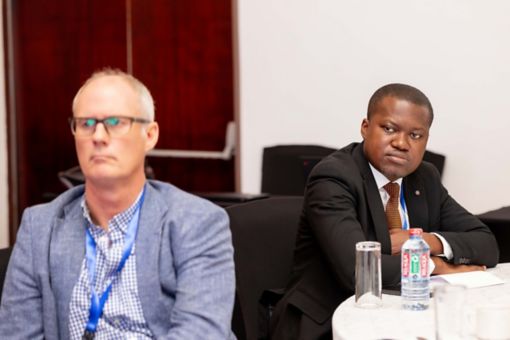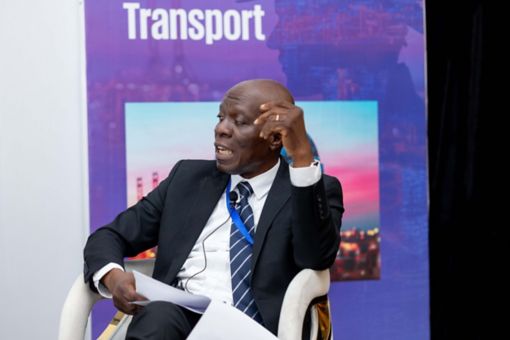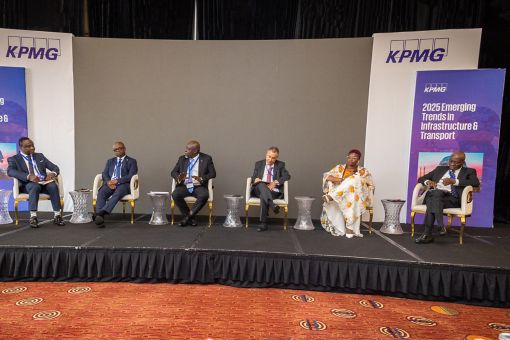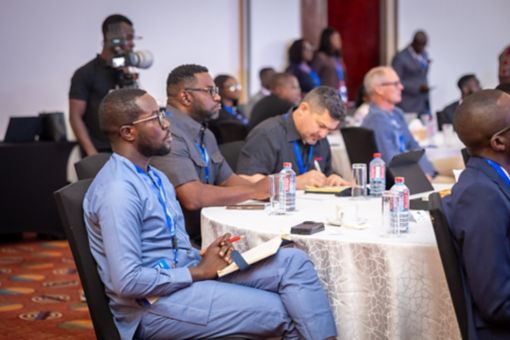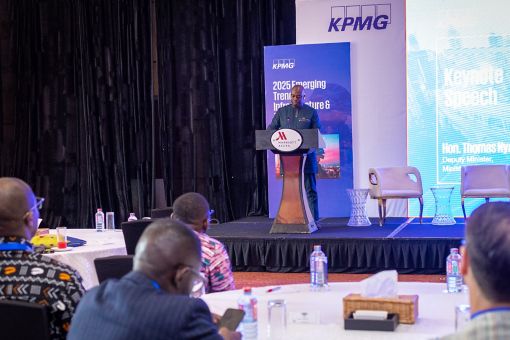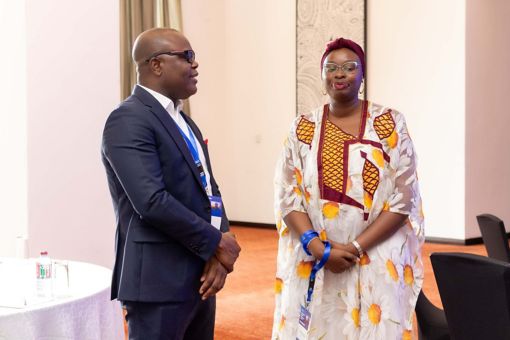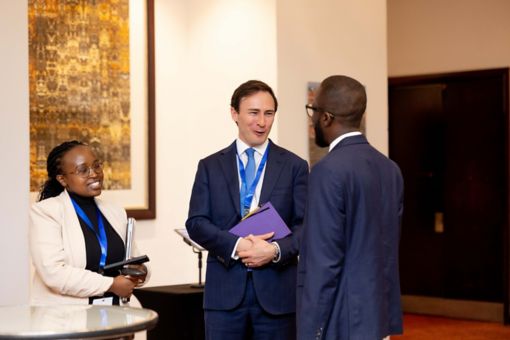KPMG Ghana Launches 2025 Emerging Trends in Infrastructure & Transport
On 10 September 2025, KPMG in Ghana unveiled its 2025 Emerging Trends in Infrastructure & Transport thought leadership publication at a high-level summit dedicated to driving transformative change in sustainable infrastructure delivery across Africa.
The summit aligned global insights with Ghana’s national priorities, bringing together government officials, financiers, development partners, and private sector leaders to chart a path toward closing Africa’s infrastructure gap.
Setting the Context
Delivering the welcome address, Andy Akoto (Country Managing Partner, KPMG in Ghana) underscored that infrastructure is one of KPMG’s “Big Bets” under the One Africa Strategy, as it is foundational to unlocking Africa’s economic potential.
“The launch of our 2025 Emerging Trends in Infrastructure & Transport is more than a publication. We want to help bridge the infrastructure financing gap and unlock the participation of private capital in Ghana’s development agenda,” Andy said.
He emphasised that while the challenges are significant, the opportunities can be realized through stronger partnerships across government, DFIs, investors, and the private sector. Andy also stated that the launch of KPMG’s One Africa Infrastructure Advisory Practice in Ghana is not a new offering; rather, it is the consolidation of years of work and expertise, and the strategic expansion of the firm’s One Africa Strategy where Ghana and Nigeria are taking lead roles in West Africa to deliver comprehensive support across the infrastructure lifecycle.
Government’s Perspective
Representing the Minister for Finance, Hon. Thomas Nyarko Ampem (Deputy Minister for Finance) outlined Ghana’s bold new strategy to confront its infrastructure deficit.
Through investment under the Big Push Programme and 24H+ Economy initiatives, alongside reforms to the Public Financial Management (PFM) regime and the empowerment of the Ghana Infrastructure Investment Fund (GIIF), government is realigning public finances to support infrastructure development more effectively.
He emphasized that reforms to the PFM system are designed to ensure value for money, enhance transparency, and minimize waste in public infrastructure delivery. Concluding his remarks, Hon. Ampem congratulated KPMG for pioneering the publication, acknowledging its significance in providing insights to guide Ghana’s infrastructure development agenda.
Insights from KPMG
James Woodward (Africa Head of Infrastructure & Transport, KPMG) highlighted Africa’s staggering infrastructure gap and the importance of better project structuring to attract capital. He reaffirmed KPMG’s commitment to providing advisory support across the entire infrastructure lifecycle — from strategy, feasibility and business case development to procurement, financing, delivery, and secondary market investments.
Dimeji Salaudeen (West Africa Head of Infrastructure & Transport, KPMG) presented the ten global trends shaping the future of infrastructure, ranging from mobilizing private capital (“the great privatization”) and digital twins to asset monetization, climate resilience, and capacity challenges.
Panel Reflections
An engaging panel discussion, moderated by Evans Asare (Partner, Head of Deal Advisory, KPMG in Ghana), explored the practical challenges of infrastructure delivery in Ghana and Africa. Panelists from the Ministry of Finance, GIIF, World Bank Group, Zutari, and Meridian Port Services identified key constraints, notably financing delays and poor project preparation.
Participants highlighted four themes as most pressing for Ghana:
- Resilience: Building durable infrastructure that can withstand climate change and deliver long-term value.
- Sustainability: Integrating ESG principles into urban development, transport, and energy projects.
- Capacity: Addressing talent and institutional gaps that hinder timely delivery.
- Funding: Unlocking private capital and blended finance structures to close the gap.
As one panellist observed:
“We can find the $100 trillion the world needs for infrastructure, but without capacity, resilience, and smarter strategies, the money alone won’t deliver results.”
A Call to Action
The event reinforced a clear message: Ghana’s infrastructure reset requires collaboration at an unprecedented level. To succeed, stakeholders must:
- Unlock innovative financing models that mobilize private capital at scale.
- Strengthen PPP frameworks to deliver projects that are bankable, transparent, and sustainable.
- Embed resilience by design, ensuring infrastructure can withstand climate realities and demographic pressures.
- Invest in capacity development, equipping institutions and talent across both public and private sectors.
The imperative is clear, Ghana’s ability to achieve sustained growth, enhance competitiveness, and deliver inclusive prosperity will depend on how swiftly these priorities move from vision to execution. Infrastructure that connects markets, powers industries, and improves lives must remain at the heart of this transformation.
